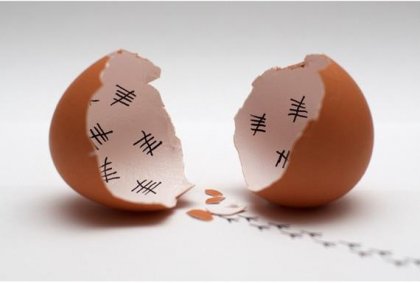I Just Can't Wait - I'm Impatient

Impatience is one of the traits of our times, and we get a lot of mixed messages about the subject. Hundreds of articles and documents promote the idea of having a more calm attitude towards life. At the same time, as a society, we value anything that helps us do things faster. We’ve gotten to the point where we get frustrated if the internet takes more than 5 seconds to connect. And God forbid anyone takes too much time to hit the accelerator when the light turns green.
It’s important to remember that impatience is a learned behavior. Although physiologically there are organisms that react to circumstances with more energy, that doesn’t lead to a lack of patience. Culture and education are what instill an inability to wait or tolerate something that happens slowly.
“Patience is the strength of the weak, impatience is the weakness of the strong.”
-Immanuel Kant-
Experts associate impatience with the inability to tolerate frustration. In the first place, there is no reason that not getting your desired result quickly should cause anxiety. Nevertheless, we find ourselves pressured by the social demand to do everything fast on one hand, and on the other education tends to dissociate effort and results. Our culture encourages the idea that one should get what he or she wants, the sooner the better.
Impatience and the here and now
The emotional perception of time has suffered from significant changes in recent times. We place overly high value on the present and the here and now. That’s why we are distressed when we don’t achieve immediate results. So, we are flooded by the present and it rushes by faster than we can handle. The result is that we are filled with anxiety.

The concepts of medium and long-term are becoming vague for many people. We don’t value the process anymore, we only see the results. The idea that time is short and we can’t waste it is very popular, so everyone is in a hurry. Time is now an indicator of competitiveness.
Until very recently, delays didn’t have a negative connotation. People accepted them as a natural part of life, especially for work related to creativity. Everyone assumed that there were some things that took longer than others. They let them flow without rushing. Today, this is almost impossible. That’s why many people are searching for the method or shortcut that will take them quickly to their destination.
Irritation and impulsivity of impatient people
Impatience is a taut cord that is more and more tense with every passing moment. At one end is the effort you put in, and the at the other is the expected result. Between the two is a period of time that many people want to reduce as much as possible.

That’s why people who are impatient are often in a constant state of irritation. They suffer from a sort of greed about time. They want everything to happen quickly, and it’s never fast enough for them. If something takes two minutes, they want it to take one. And on and on it goes. Since it’s impossible for things to happen instantly, they become angry and tense.
It’s also common for impatient people to be impulsive. Their obsession for speed turns into a need to always act hastily. Frequently, they don’t stop to think about what to do or what to say. Even though they might have to take back what they do or say later, their first instinct is to react. That makes the irritation even worse.
Overcoming impatience
Impatience isn’t in your genes. It’s not part of your human composition. As we were saying before, it is a pattern of behavior that you learn. Looking at it from this perspective, it’s possible to retrain your emotions to behave in a more constructive way. There are different ways to achieve this, but one of the most effective is to practice patience.

The way to do that, in the first place, is to adopt a slower rhythm. Don’t get frustrated. It’s good to start with breathing exercises. Five minutes a day to breathe deeply and slowly. This simple exercise changes your heart rate and your brain activity. This will help you lose the feeling that you are wasting time when you have to slow down or wait.
It’s worth cultivating patience. The calmer you are, the more likely you are to get good results. Also, you can plan your time better and have more appropriate emotional reactions. You will increase the valuable feeling of self-control and avoid doing or saying things you will regret later. Try to seek out situations that make you wait a little bit. If your case isn’t pathological, that will be enough to re-educate yourself.
Impatience is one of the traits of our times, and we get a lot of mixed messages about the subject. Hundreds of articles and documents promote the idea of having a more calm attitude towards life. At the same time, as a society, we value anything that helps us do things faster. We’ve gotten to the point where we get frustrated if the internet takes more than 5 seconds to connect. And God forbid anyone takes too much time to hit the accelerator when the light turns green.
It’s important to remember that impatience is a learned behavior. Although physiologically there are organisms that react to circumstances with more energy, that doesn’t lead to a lack of patience. Culture and education are what instill an inability to wait or tolerate something that happens slowly.
“Patience is the strength of the weak, impatience is the weakness of the strong.”
-Immanuel Kant-
Experts associate impatience with the inability to tolerate frustration. In the first place, there is no reason that not getting your desired result quickly should cause anxiety. Nevertheless, we find ourselves pressured by the social demand to do everything fast on one hand, and on the other education tends to dissociate effort and results. Our culture encourages the idea that one should get what he or she wants, the sooner the better.
Impatience and the here and now
The emotional perception of time has suffered from significant changes in recent times. We place overly high value on the present and the here and now. That’s why we are distressed when we don’t achieve immediate results. So, we are flooded by the present and it rushes by faster than we can handle. The result is that we are filled with anxiety.

The concepts of medium and long-term are becoming vague for many people. We don’t value the process anymore, we only see the results. The idea that time is short and we can’t waste it is very popular, so everyone is in a hurry. Time is now an indicator of competitiveness.
Until very recently, delays didn’t have a negative connotation. People accepted them as a natural part of life, especially for work related to creativity. Everyone assumed that there were some things that took longer than others. They let them flow without rushing. Today, this is almost impossible. That’s why many people are searching for the method or shortcut that will take them quickly to their destination.
Irritation and impulsivity of impatient people
Impatience is a taut cord that is more and more tense with every passing moment. At one end is the effort you put in, and the at the other is the expected result. Between the two is a period of time that many people want to reduce as much as possible.

That’s why people who are impatient are often in a constant state of irritation. They suffer from a sort of greed about time. They want everything to happen quickly, and it’s never fast enough for them. If something takes two minutes, they want it to take one. And on and on it goes. Since it’s impossible for things to happen instantly, they become angry and tense.
It’s also common for impatient people to be impulsive. Their obsession for speed turns into a need to always act hastily. Frequently, they don’t stop to think about what to do or what to say. Even though they might have to take back what they do or say later, their first instinct is to react. That makes the irritation even worse.
Overcoming impatience
Impatience isn’t in your genes. It’s not part of your human composition. As we were saying before, it is a pattern of behavior that you learn. Looking at it from this perspective, it’s possible to retrain your emotions to behave in a more constructive way. There are different ways to achieve this, but one of the most effective is to practice patience.

The way to do that, in the first place, is to adopt a slower rhythm. Don’t get frustrated. It’s good to start with breathing exercises. Five minutes a day to breathe deeply and slowly. This simple exercise changes your heart rate and your brain activity. This will help you lose the feeling that you are wasting time when you have to slow down or wait.
It’s worth cultivating patience. The calmer you are, the more likely you are to get good results. Also, you can plan your time better and have more appropriate emotional reactions. You will increase the valuable feeling of self-control and avoid doing or saying things you will regret later. Try to seek out situations that make you wait a little bit. If your case isn’t pathological, that will be enough to re-educate yourself.
This text is provided for informational purposes only and does not replace consultation with a professional. If in doubt, consult your specialist.







